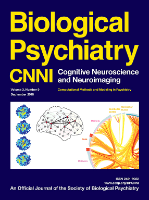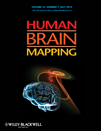
Cognitive Neurodynamics
Scope & Guideline
Illuminating the Dynamics of Thought and Behavior.
Introduction
Aims and Scopes
- Neurodynamic Modeling:
The journal emphasizes the development and application of computational and mathematical models to simulate neural dynamics and their relationship to cognitive functions. - Brain-Computer Interfaces (BCIs):
A significant focus is placed on the design and improvement of BCIs, exploring their applications in rehabilitation, communication, and cognitive assessment. - Neuroimaging and EEG Studies:
Research utilizing neuroimaging techniques, particularly EEG, to investigate brain activity patterns related to cognitive processes, disorders, and responses to stimuli. - Cognitive Neuroscience:
Exploration of the neural correlates of cognitive functions such as memory, attention, and decision-making, often through interdisciplinary approaches. - Neurophysiological Mechanisms:
Investigation into the underlying neurophysiological mechanisms that facilitate learning, memory, and other cognitive processes, often in the context of neurological disorders. - Machine Learning Applications:
The application of machine learning techniques to analyze neurophysiological data, enhance diagnostic capabilities, and improve cognitive task performance. - Neuroscience and Rehabilitation:
Research into how neuroscience can inform rehabilitation strategies for cognitive and motor impairments, particularly post-injury or in neurodegenerative conditions.
Trending and Emerging
- Multimodal Neuroimaging:
There is an increasing trend in integrating multiple neuroimaging techniques (e.g., EEG, fMRI) to provide a more holistic view of brain function and cognition. - AI and Machine Learning in Neuroscience:
The application of artificial intelligence and machine learning techniques is on the rise, particularly in the analysis of neurophysiological data for improved diagnosis and cognitive assessment. - Dynamic Functional Connectivity:
Research focusing on dynamic functional connectivity is emerging, emphasizing how connectivity patterns change over time and their implications for cognition and behavior. - Neurofeedback and Cognitive Training:
Studies exploring the use of neurofeedback for cognitive enhancement and rehabilitation are gaining attention, reflecting a growing interest in practical applications of neurodynamics. - Neuroscience of Emotion and Decision-Making:
There is an increasing focus on understanding the neural mechanisms behind emotional processing and decision-making, particularly in contexts such as consumer behavior and mental health. - Neuroscience of Learning and Memory:
Emerging research is delving deeper into the neurodynamic processes underlying learning and memory, with implications for educational practices and therapeutic interventions.
Declining or Waning
- Traditional Neuropsychological Assessments:
There is a noticeable decline in studies relying solely on traditional neuropsychological assessments, as newer methodologies, particularly neuroimaging and computational modeling, gain traction. - Basic Neuroscience without Computational Models:
Research focusing on basic neuroscience principles without integrating computational models is becoming less common, as the field increasingly prioritizes dynamic modeling approaches. - Single Modal Studies:
The prevalence of studies using a single modality of data collection (e.g., only EEG or fMRI) is diminishing in favor of multimodal approaches that provide more comprehensive insights. - Generalized Cognitive Theories:
Broad cognitive theories that do not incorporate specific neurodynamic or computational frameworks are becoming less favored, as researchers seek more precise models that account for neural dynamics.
Similar Journals

BRAIN TOPOGRAPHY
Pioneering the Study of Brain Activity Through Advanced ImagingBRAIN TOPOGRAPHY is an esteemed academic journal dedicated to the exploration of topographical mapping of brain activities, cementing its reputation as a cornerstone in the fields of anatomy, neurology, and radiology. Published by SPRINGER, this journal has been a vital resource since its inception in 1988, with a steadily increasing impact reflected in its 2023 rankings, including Q1 categories in Anatomy and Radiology. With its significant contributions to understanding cerebral structure and function through advanced imaging technology, BRAIN TOPOGRAPHY is essential for researchers, professionals, and students seeking to stay at the forefront of neuroscientific advancements. The journal benefits from its strong academic stature, positioned within the 60th to 71st percentiles across several Scopus ranks, further enhancing its visibility in an evolving research landscape. Although not an open-access journal, its rigorous peer-review process ensures the dissemination of high-quality research that significantly contributes to the scientific community. Set against the backdrop of a global landscape, this journal continues to shape discussions on cerebral topography, offering a platform for innovative studies and critical insights.

Journal of Cognitive Science
Fostering Interdisciplinary Dialogue on CognitionThe Journal of Cognitive Science, with ISSN 1598-2327, is a distinguished publication from SEOUL NATL UNIV, INST COGNITIVE SCIENCE, focusing on the multidisciplinary field of cognitive science. Established in 2016, this journal aims to advance knowledge in various domains, including Artificial Intelligence, Cognitive Neuroscience, and Experimental Psychology, while also delving into Linguistics and Language. Although currently categorized in Q4 for several subjects in the 2023 rankings, it presents an invaluable platform for innovative research and scholarly discourse, providing insights that connect cognitive processes with practical applications, thus fostering cross-disciplinary collaboration. Located in South Korea, the journal adheres to rigorous academic standards, inviting submissions that contribute significantly to understanding cognition in a digital age. While it does not offer Open Access, readers can access articles through university libraries and academic databases, engaging with the latest findings and theories that shape the future of cognitive science.

Aging Brain
Connecting Research to Enhance Brain HealthAging Brain is a premier Open Access journal published by Elsevier, dedicated to advancing the understanding of the neurobiological changes associated with aging. Since its commencement in 2021, this journal has been pivotal in disseminating high-quality research that explores the intricate relationships between aging and cognitive functions, neurological disorders, and overall brain health. With a notable commitment to open accessibility, Aging Brain ensures that vital findings are available to a global audience, fostering collaboration and innovation in the field. Researchers, healthcare professionals, and students alike will find a rich repository of cutting-edge studies, reviews, and insights aimed at addressing the complexities of the aging brain. The journal stands as an influential platform for those passionate about enhancing the quality of life for the aging population, making it a valuable resource in gerontology and neuroscience.

JOURNAL OF COGNITIVE NEUROSCIENCE
Advancing the frontiers of cognitive understanding.Welcome to the JOURNAL OF COGNITIVE NEUROSCIENCE, a premier publication in the field of cognitive neuroscience, published by the esteemed MIT PRESS. Since its inception in 1989, this journal has been at the forefront of advancing our understanding of the neural mechanisms underlying cognitive processes, boasting an impressive convergence period through 2024. With its Q1 ranking in the 2023 cognitive neuroscience category, it stands out among 115 peers, indicating its critical role in shaping contemporary research. The journal offers a comprehensive array of research articles, reviews, and methodologies aimed at researchers, professionals, and students alike, facilitating the exploration of complex cognitive functions. While not an open-access journal, it provides essential insights and significant contributions to the neuroscience community, making it an invaluable resource for anyone keen on delving into the intricacies of the human brain.

Frontiers in Human Neuroscience
Pioneering Discoveries in Neuropsychology and BeyondFrontiers in Human Neuroscience is a premier open access journal published by FRONTIERS MEDIA SA, dedicated to advancing the understanding of the complexities of human neuroscience. With an ISSN of 1662-5161, the journal has established its prominence in various fields, achieving a Q2 ranking in categories such as Behavioral Neuroscience, Neuropsychology and Physiological Psychology, and Psychiatry and Mental Health as of 2023. Since its inception in 2008, Frontiers in Human Neuroscience has consistently contributed to the scholarly dialogue by offering a platform for innovative research that bridges the gap between neuroscience and behavioral science. The journal's rigorous peer-review process and commitment to open access ensures that findings are readily available, promoting collaboration and progress within the academic community. With an impact on neuroscience disciplines, it stands at the forefront of the field, inviting researchers, professionals, and students alike to engage with cutting-edge studies and developments. The journal's address is located in Lausanne, Switzerland, where it continues to flourish as a hub for neurobiological exploration.

Network Neuroscience
Charting New Territories in Neuroscience and MathematicsNetwork Neuroscience is a premier open-access journal published by MIT Press, focusing on the interdisciplinary nexus of neuroscience, applied mathematics, artificial intelligence, and computer science. Since its inception in 2017, the journal has established itself as a leading outlet for innovative research and cutting-edge methodologies, ensuring disseminated knowledge is freely accessible to all. With an impressive Q1 ranking in multiple categories including Applied Mathematics, Artificial Intelligence, Computer Science Applications, and Neuroscience, it serves as a vital platform for scholars, professionals, and students to explore the intricate networks that underpin cognitive processes and brain function. The journal is committed to advancing the understanding of complex neural mechanisms through interdisciplinary approaches and remains a crucial resource for anyone engaged in the burgeoning fields of network science and neuroscience research.

Biological Psychiatry-Cognitive Neuroscience and Neuroimaging
Decoding Mental Health: Where Science Meets InsightBiological Psychiatry-Cognitive Neuroscience and Neuroimaging is a leading interdisciplinary journal published by Elsevier, focusing on the convergence of biological psychiatry, cognitive neuroscience, and advanced neuroimaging techniques. With its prestigious Q1 rankings across essential categories such as Biological Psychiatry, Cognitive Neuroscience, and Neurology (clinical), this journal is at the forefront of research that examines the complexities of mental health through innovative methodologies. Covering a broad spectrum of topics from neurobiological mechanisms to clinical applications, it aims to provide a platform for scholars and practitioners to exchange insights on mental disorders and their neurobiological underpinnings. The impact factor and Scopus rankings further underscore its importance, with rankings highlighting its position in the top percentiles of related disciplines. By fostering an open exchange of ideas and promoting cutting-edge research, this journal is an essential resource for researchers, professionals, and students dedicated to advancements in the understanding and treatment of psychiatric and neurological conditions.

Brain Communications
Bridging the Gap Between Brain Function and Psychiatric DisordersBrain Communications is an esteemed, open-access academic journal published by Oxford University Press since 2019, focusing on the dynamic field of neuroscience. With a dedicated ISSN and an E-ISSN of 2632-1297, this journal aims to address the intricate relationships between brain functions, psychiatric disorders, and neurobiological mechanisms. The journal stands out in the academic realm, holding a prestigious Q1 ranking across several categories, including Biological Psychiatry, Cellular and Molecular Neuroscience, Neurology, and Psychiatry and Mental Health for 2023. Notably, it has also secured impressive Scopus ranks in various neuroscience and psychiatry fields, evidencing its commitment to high-quality research. With an impact factor reflective of its growing influence, Brain Communications provides accessible research findings to professionals, researchers, and students alike, fostering a deeper understanding of complex neurological phenomena. This innovative journal is pivotal for anyone involved in advancing knowledge in neuroscience and mental health.

HUMAN BRAIN MAPPING
Unraveling the mysteries of the human brain.HUMAN BRAIN MAPPING, published by Wiley, is a premier journal in the field of neuroscience, devoted to comprehensively advancing understanding of brain structure and function through innovative mapping techniques. With an impressive impact factor and ranked in the Q1 category across multiple relevant disciplines—including Anatomy, Neurology, and Radiology—this journal is recognized as a vital resource for researchers and professionals passionate about the complexities of the human brain. Founded in 1993 and continuously publishing groundbreaking research, HUMAN BRAIN MAPPING is essential for those looking to stay at the forefront of developments in anatomical and neurological research. Though it does not currently offer Open Access options, the journal remains committed to disseminating high-quality research that influences clinical practices and academic inquiry. Its esteemed position within Scopus highlights its significance; charting at the top percentiles across various medical and health fields serves as a testament to the critical contributions made by the authors and researchers involved. As it converges toward 2024, HUMAN BRAIN MAPPING continues to be the go-to platform for publishing pivotal insights into the intricacies of brain mapping methodologies and applications.

COGNITIVE AFFECTIVE & BEHAVIORAL NEUROSCIENCE
Illuminating Connections: Understanding the Neuroscience of Mind and ActionCOGNITIVE AFFECTIVE & BEHAVIORAL NEUROSCIENCE (ISSN: 1530-7026, E-ISSN: 1531-135X) is an esteemed journal published by SPRINGER that aims to advance the understanding of the interplay between cognitive processes, affective states, and behavioral responses in the field of neuroscience. Established in 2001, the journal provides a rigorous platform for disseminating high-quality research, with a significant focus on both Behavioral Neuroscience and Cognitive Neuroscience. Classified in Q1 and Q2 quartiles for 2023, it ranks highly within its categories, holding positions of #37 out of 88 and #46 out of 115 respectively in the Scopus listings. Although not an open-access publication, readers can access a wealth of valuable insights and innovative findings that enrich the scientific community's understanding of brain function and behavior. The journal's emphasis on interdisciplinary research contributes to its esteemed reputation, making it a vital resource for students, researchers, and professionals striving to explore the complex nature of the human mind and behavior.